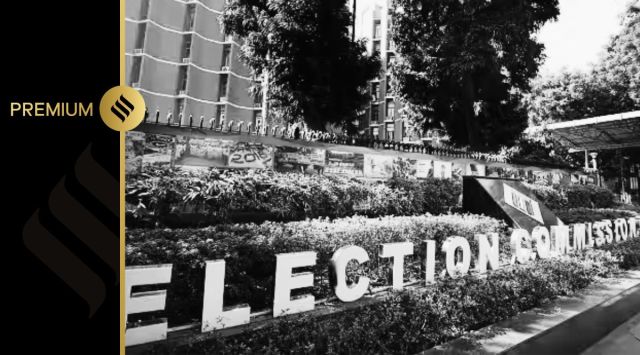
This change doesn’t have significant financial implications, as the basic salary of an apex court judge and the Cabinet Secretary is nearly identical – Supreme Court Judges are entitled to more post-retirement benefits, including lifetime provision of drivers and domestic help. The disquiet, however, stems from concerns about how aligning Election Commissioners with the bureaucracy could potentially tie their hands and erode their perceived authority.
“Being seen as the equal of a Cabinet Secretary means you’re even below an MoS (Minister of State) in stature. How do you think that will play out when the Commission tries to discipline a Union minister for violations during an election,” said a source.
ExplainedNot about salary
THE Election Commission (Conditions of Service of Election Commissioners and Transaction of Business) Act, 1991, specifies that the three election commissioners are equivalent in pay and service conditions to Supreme Court Judges. Changing this provision raises concerns about the political signal it sends.
“At present, when the commissioners call a government officer – say the Law Secretary or Cabinet Secretary at the Centre or the Chief Secretary of a state – for a meeting, or seek their explanation regarding a lapse or deliberate disregard of their direction, their order is perceived to carry the authority of a Supreme Court Judge. They are not their equals. How do you think it will affect their command and control if they are seen as equal to Cabinet Secretary,” said the source.
The pecking order isn’t merely a matter of perception; it also reflects in the communication exchanged between the EC and the Centre. Historically, CECs have addressed their letters to the President, Prime Minister and the Law Minister, rather than government officers. The Commission’s officers handle interactions with the bureaucracy.
Sources have also noted that if the Bill is passed, it would create a peculiarity wherein the Constitution stipulates that a CEC can only be removed in a manner similar to that of a Supreme Court Judge. However, in practice, the CEC’s service conditions align with those of a Cabinet Secretary.
Story continues below this ad
The disquiet has also resonated within the community of former CECs, who concur that the proposed downgrading of service conditions for Election Commissioners would not only erode their authority but also impact their international standing. In many countries, especially developing countries which look up to India’s electoral democracy, their counterparts are either retired Supreme Court Judges or enjoy the status of SC Judges.
“Half of the countries in the world have judges as Election Commissioners. We are the vishwa guru in elections, 108 countries have sent their Election Commissioners to learn from us in the past 10 years. What are we achieving by downgrading,” former CEC S Y Quraishi told The Indian Express.
According to him, equating the EC with the Cabinet Secretary may have been an oversight. “In the past few years, the government has similarly equated the salary of the CIC (Chief Information Commissioner) and CVC (Chief Vigilance Commissioner) with that of the Cabinet Secretary instead of an apex court Judge. The difference is that the CVC and CIC are not Constitutional bodies like the EC. The equivalence of the EC to a Judge is implied in the Constitution itself as it says the CEC can only be removed through impeachment,” Quraishi said.
Another former CEC, speaking on condition of anonymity, said it was not a question of the salary, but the stature of the Election Commission.
Story continues below this ad
“The salary may not be different in the proposed Bill, but what is different is the public perception of who the EC is being equated to. Judges are given an independent stature under the Constitution because they have to decide cases that involve the government, the Prime Minister and Ministers. That kind of independence is needed for the Election Commission too. This is sending the wrong message about the independent character of the EC,” said the former CEC.
Another former CEC, who also did not want to be named, said while the salary would remain the same, there was “effective downgrading as the EC was put on the same pedestal as the bureaucracy”. This was “dilution of the authority of the EC”, and the “political class cannot be disciplined by civil servants”, the former CEC said.
The Chief Election Commissioner and Other Election Commissioners (Appointment, Conditions of Service and Term of Office) Bill, 2023, deals with the constitution of a committee responsible for selecting the three election commissioners. This committee, which has the Prime Minister, Leader of Opposition, and a Union Cabinet Minister does not have the Chief Justice of India as a member, contrary to the Supreme Court’s suggestion in a March 2023 judgment.
In its ruling dated March 2, 2023, the Supreme Court had said that in the absence of a Central government law governing appointments to the Election Commission of India, such appointments must be made based on the recommendations of a committee. This committee is to be composed of the Prime Minister, the Chief Justice of India, and the Leader of the Opposition in the Lok Sabha, it had said.










